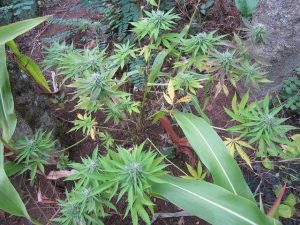By Collin Bonnell

Earlier this month, the New York Police Department (NYPD) took an important step in relaxing cannabis laws in America’s largest city by decriminalizing the drug in quantities under 25 grams. Despite this step forward, cannabis is still illegal in the City and State of New York, despite the economic and social costs of enforcing its prohibition both for the government and citizens of New York.
Prohibition is a huge financial burden for New York City and has also served to entrench racial divisions. African-American residents are eight times more likely than their white peers to be arrested for possession of cannabis, despite the fact that both groups use the drug at roughly the same rate. Many New Yorkers continue to oppose the liberalization of drug laws in ignorance to the harm that current drug policy results in, citing outdated ideas about the drug’s suspected (but as-of-yet undocumented) impact on ill-defined aspects like “cognition” and “motivation.”
Even the New York Times, a newspaper often seen as an embodiment of east coast liberalism, published a column this past Friday in which it cited Elon Musk’s appearance on Joe Rogan’s podcast – during which Musk smoked cannabis with the comedian – as a reflection of Musk’s downward descent into failure. Earlier the same week, the Times ironically published a piece on the long-term effects of alcohol, dismissing a recent study which proved that any level of alcohol consumption is dangerous, claiming that the long-term effects of alcohol consumption are too negligible to warrant legitimate discussion. This stance goes against all evidence surrounding alcohol use and its complications.
According to the Center for Disease Control and Prevention, at least 30,722 Americans died as a direct result of alcohol use in 2014 alone. The Drug Enforcement Administration estimated that zero Americans died from consuming cannabis during the same year. Meanwhile, a large-scale study conducted by the American Journal of Public Health found that long-term cannabis use has no effect on life expectancy, while alcohol use has been found to greatly increase the likelihood of dying from accidents, cancers and other complications.
While some choose to maintain their ignorance towards these well-documented trends out of fear concerning the “undocumented long-term effects of cannabis use,” their opinions should not be allowed to drag down society as a whole, nor be used as justification for the imprisonment of their neighbors who choose to use the drug at their own risk. Indeed, my home state of Massachusetts learned this lesson a full decade ago, when the state decriminalized cannabis in 2008.
Massachusetts has always prided itself on its forward-looking character, which has become central to its drug policy since decriminalization in 2008.
The state’s policy expanded to the legalization of medical cannabis in 2012 and the legalization of recreational cannabis use in 2016, which finally came into effect this past July. Even Charlie Baker, our conservative governor, has embraced changes to cannabis policy, pushing the Massachusetts State Legislature to continue the process of legalization rather than delay it or block the opening of dispensaries in the Commonwealth.
Meanwhile, many citizens of the Commonwealth have benefited from medical cannabis, especially CBD-dominant forms of the drug, including non-psychoactive CBD medications. There have helped several of my own friends deal with health issues as diverse as recovery from shoulder surgery and chronic anxiety. As Boston’s exploding biotech and medical sectors have become more open to the drug, the potential of medical cannabis continues to grow.
In Boston and its suburbs, cannabis use is common, especially amongst young people, while alcohol is increasingly seen as a social evil. Meanwhile, the state government has rightly increased its enforcement of alcohol-related laws, including the drug’s sale to underage residents.
This move has assuradly saved countless Bay Staters already, while the Commonwealth’s decision to relax enforcement of cannabis has saved residents from serving prison time for use of a drug that causes little harms to themselves or others.
While this trend does not appear to have yet extended to New York, one can hope that more New Yorkers will open their eyes and grow to see cannabis for what it is: a less dangerous alternative to alcohol.
Collin Bonnell, FCRH ’21, is a history and political science major from Hingham, Massachussettes.




































































































































































































